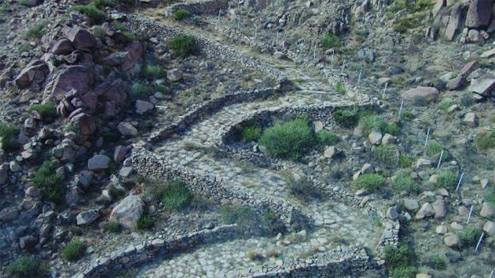 ISLAMABAD (September 08 2010): Prime Minister Yousaf Raza Gilani fears that inflation will touch 20 percent, against the target of 9.5 percent, during the current fiscal year due to unprecedented flood damage on all productive sectors of the economy, according to official documents available with Business Recorder. The budget deficit for 2010-1,1 prior to the crop damage and its impact on food supply, was estimated at 4.5 percent of GDP.
ISLAMABAD (September 08 2010): Prime Minister Yousaf Raza Gilani fears that inflation will touch 20 percent, against the target of 9.5 percent, during the current fiscal year due to unprecedented flood damage on all productive sectors of the economy, according to official documents available with Business Recorder. The budget deficit for 2010-1,1 prior to the crop damage and its impact on food supply, was estimated at 4.5 percent of GDP.
This has now been revised upward to 6-7 percent of GDP. The Prime Minister gave these estimates at a meeting of the Cabinet on September 1, 2010, with a review of the flood damage and its impact on key economic indicators as the main agenda item.
“The inflation target of 9.5 percent for 2010-11 will be missed, and it is likely to be in the range of 15-20 percent. Inflation in the short-term (1-3 months) is likely to spike significantly in the case of shorter food supply due to crop destruction. The inflation will occur in daily use items such as vegetables, spices, lentils, fruits, meat, and milk products. Midterm inflation (4-8 months) will rise due to spike in prices of wheat, rice and sugar until the next harvest,” the Prime Minister added.
According to him, shortages and increased demand of construction materials, fertilisers and pesticides would contribute to a spike in non-food inflation. Official documents further suggest that Pakistan’s economy grew by 4.1 during last financial year and was expected to grow by 4.5 percent during the current fiscal year.
The damage caused by the floods would bring down the real GDP growth to 2.5 percent. This would translate into massive job losses, and incomes of thousands of families will be adversely affected. Consequently, it may have serious social implications.
Overall performance of agriculture sector will be much lower this year and the year ahead. This loss will have a snowball effect on manufacturing, services and export sectors. Most families face a real risk of income and employment losses. Food security of the country is also under threat. According to the Prime Minister devastation is likely to affect revenue collection and increase expenditure which will increase the budget deficit.
Manufacturing may also fall far below the target level of 5.6 percent. Services sector (including wholesale and retail trade) constituting more than 50 percent of GDP is dependent on agriculture, manufacturing, imports, exports and government’s current expenditure.
Analysts opine that the country has suffered $4-6 billion damage to infrastructure, livestock and crops. Approximately $200 million would be required for recovery/relief efforts, whereas repair of cost of key damaged infrastructure could exceed $1 billion.
“It is indeed a time for reflection, as it is a pensive moment in our history. It is also a time for action; above all a time for sharing! We have to realise the pain of our brothers and sisters and sacrifice to relieve their pain. Mere words will not heal as it is a time for collective sacrifice, both at the national and individual level,” he said. The Prime Minister, according to the documents, requested the provincial governments to ensure availability of building materials, like cement, steel and bricks at affordable prices. -Brecorder











